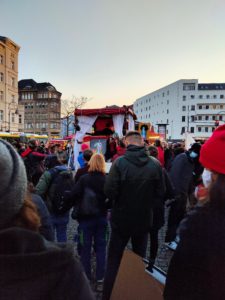 We attended the Second Bloody Week in Berlin in solidarity with the Polish women protesting the pseudo-constitutional judgment banning abortion in Poland. We read out the following statement:
We attended the Second Bloody Week in Berlin in solidarity with the Polish women protesting the pseudo-constitutional judgment banning abortion in Poland. We read out the following statement:
Wir stehen in Solidarität mit den Frauen und Menschen in Polen, die für ihre Selbstbestimmung streiken – Selbstbestimmung über ihre Körper, ihre Gesundheit, und ihre Zukünfte. Der Kampf gegen das Abtreibungsgesetz ist, wie Marta Kempart vom “polnischen Frauenstreik” es neulich ausgedrückt hat, “ein Kampf gegen eine patriarchale Kultur, gegen den patriarchalen Staat, gegen den fundamentalistischen religiösen Staat, gegen den frauenfeindlichen Staat”.
Sowohl in Indien, als auch in Südasien steigen die Gräueltaten gegen Frauen und nicht-cis-Minderheiten, besonders unter den Faschist:innen und Hindunationalist:innen, die seit 2014 das Land regieren. Insbesondere sind Dalit, muslimische, Adivasi oder indigene, Kaschmiris, und andere unterdrückte Menschen davon betroffen, wie wir neulich in Hathras gesehen haben, und seit Jahrzenten in Kaschmir, Manipur und anderen militarisierten Regionen mitbekommen. Zusammen mit den strukturellen Ebenen, erfahren Frauen auch auf zwischenmenschliche Ebene in Familien, von Männern in Partnerschaften, Freundschaften, Bekanntenkreisen, und von fremden Gewalt. Die Rolle der Männer auf allen Ebenen ist wichtig zu betonen, und dementsprechend auch die notwendige Arbeit, die Männer für diesen Kampf leisten müssen.
In Polen hat die Bewegung anscheinend schon einen kleinen Erfolg, aber der Kampf gegen das Patriarchat ist lang, und endet sicherlich nicht mit diesem widerlichen und menschenfeindlichen Gesetz.
Die sogenannte “Recht und Gerechtigkeitspartei” in Polen kollaboriert aktiv mit der indischen Regierung der BJP oder “indischen Volkspartei”, und zeigt, dass sowohl religiöse Fundamentalist:innen, als auch rechte Parteien und Kapital- und patriarchale Interessengruppen sich international vernetzen. Die beiden Regierungen sind sich in ihrer Islamfeindlichkeit, Migrationspolitik, Ausbeutungspolitik, ihrem ethnischen und fundamentalistischen Nationalismus und ihrer patriarchalen Politik einig, und stärken sich gegenseitig.
Deshalb stehen wir zusammen in Solidarität mit euch, mit den unterschiedlichen queer-feministischen, sozialistischen, und LGBTQI Bündnissen, um uns in der Diaspora, sowie in den jeweiligen Regionen, in denen wir aktiv sind, besser zu vernetzen, uns gegenseitig zu stärken, in Bündnissen, auf den Straßen, und in dem gemeinsamen Kampf. Solidarität ist unsere Waffe!
Laal salaam
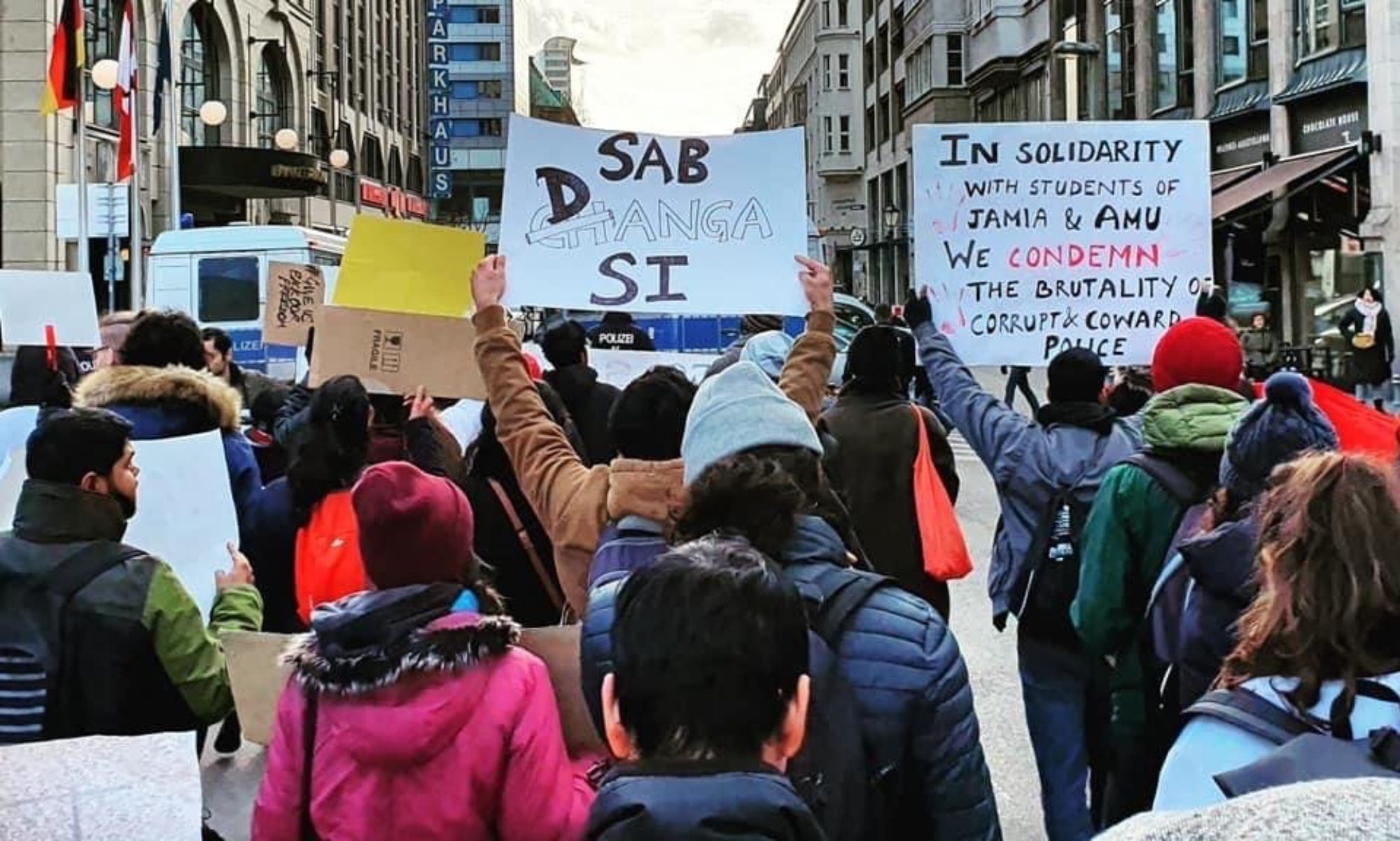
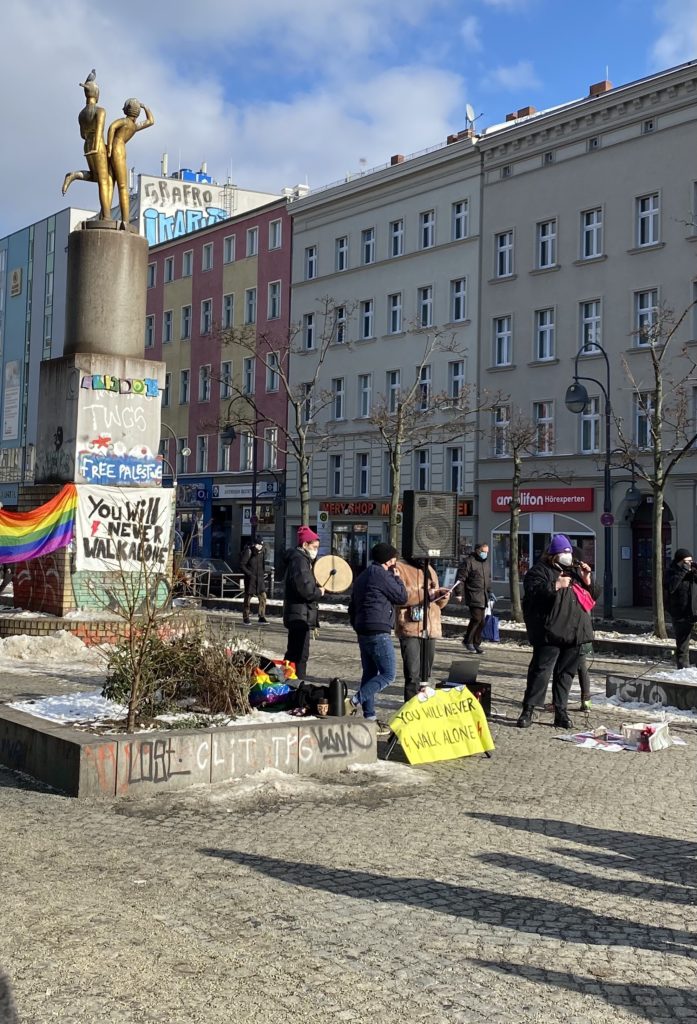
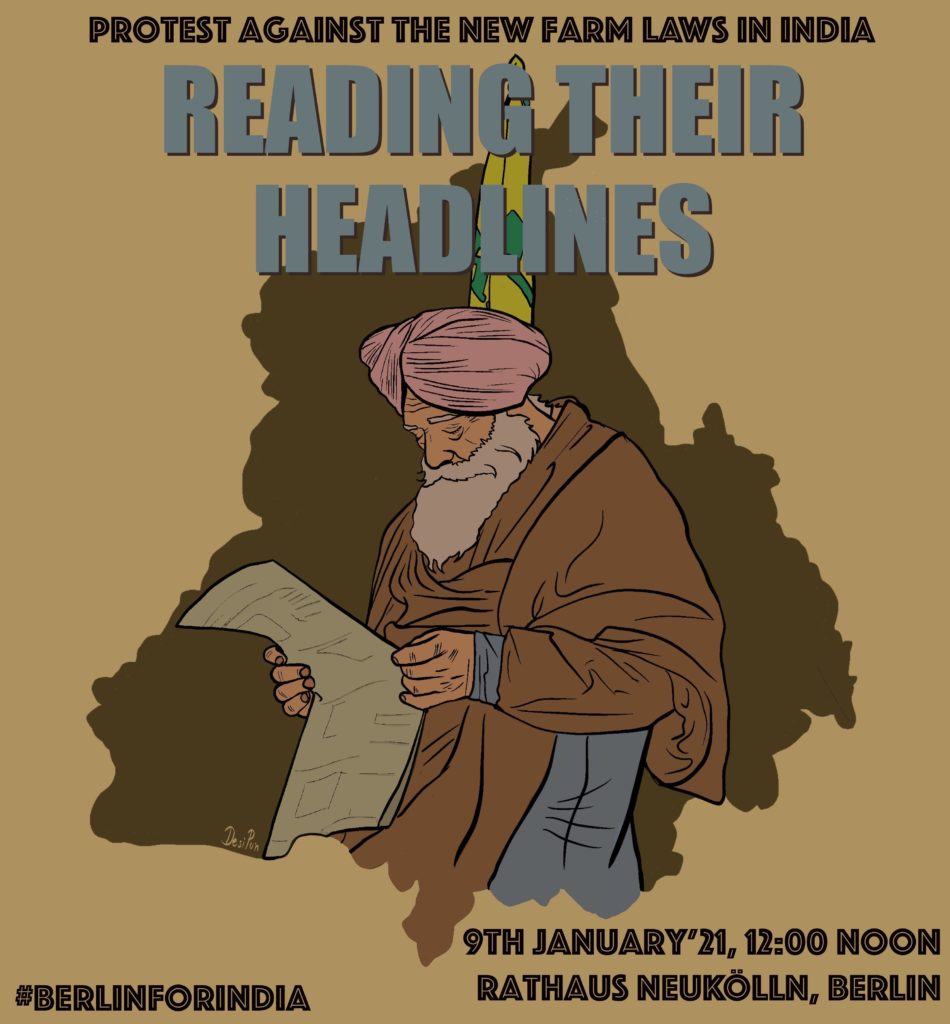
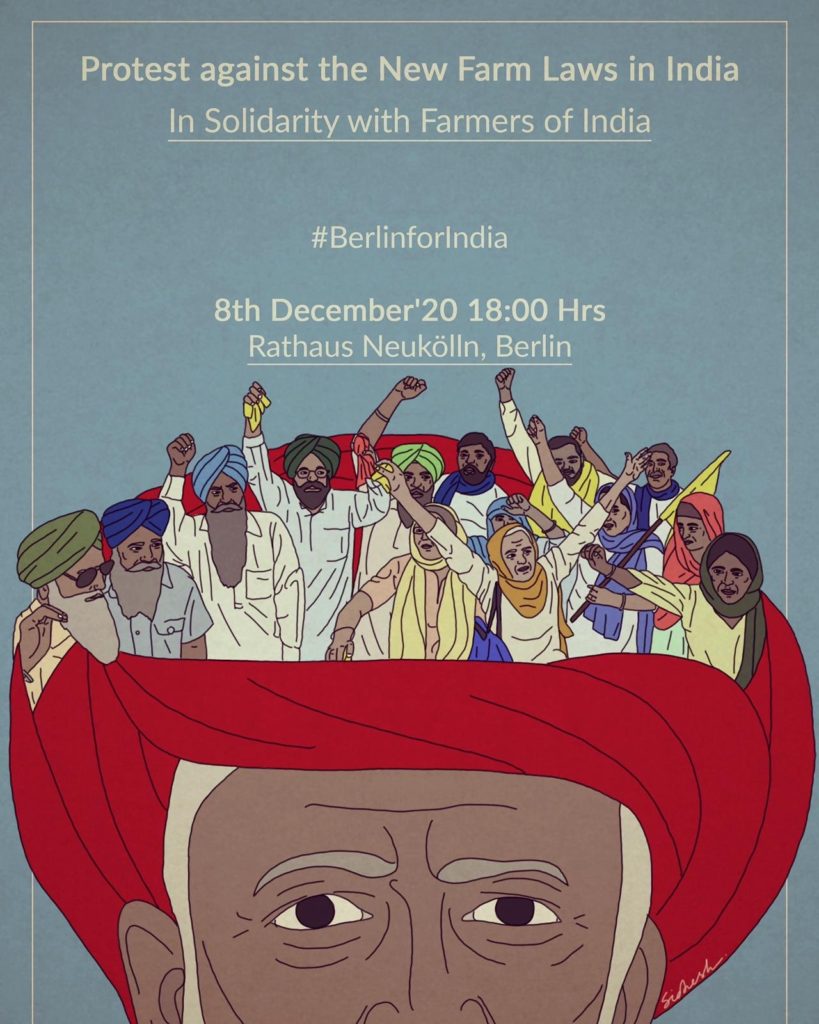 Please join us on Thursday (Dec 8) at Rathaus Neukolln to resist attempts made for the corporate takeover of Indian agriculture and to demonstrate in solidarity with striking Indian farmers.
Please join us on Thursday (Dec 8) at Rathaus Neukolln to resist attempts made for the corporate takeover of Indian agriculture and to demonstrate in solidarity with striking Indian farmers.

 We attended the Second
We attended the Second